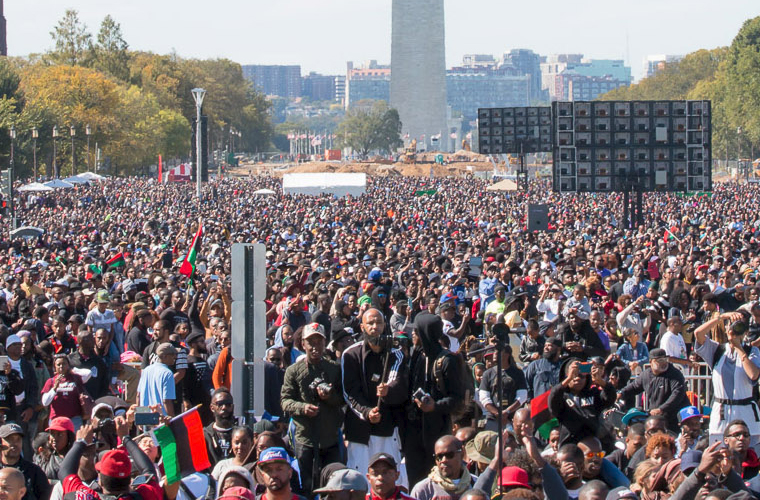The Million Man March was a historic event that took place on October 16, 1995, in Washington, D.C. Organized by the Nation of Islam leader Louis Farrakhan, the march aimed to bring attention to the issues facing African American men in the United States. The event drew an estimated 800,000 to 1 million participants, making it one of the largest gatherings in the history of the nation’s capital. The march was a call for African American men to take responsibility for their families and communities, and to demand social and economic justice. It also sought to promote unity and solidarity among African Americans and to challenge negative stereotypes and perceptions of black men in America.
The Million Man March was not without controversy. Farrakhan’s leadership of the event sparked criticism due to his history of making inflammatory and divisive remarks. Many political leaders and civil rights organizations initially distanced themselves from the march because of Farrakhan’s involvement. However, despite these concerns, the march ultimately garnered widespread support from a diverse array of individuals and groups. The day of the march was marked by powerful speeches from a variety of African American leaders, including civil rights activists, religious figures, and community organizers. The event also featured musical performances and artistic expressions of African American culture. Participants engaged in moments of prayer, reflection, and collective commitment to positive change.
One of the most enduring images of the Million Man March is the sea of black men gathered on the National Mall, standing together in solidarity and determination. The sight of so many men from diverse backgrounds coming together for a common cause sent a powerful message about the strength and resilience of the African American community. In the years following the march, its impact continued to be felt in various ways. It inspired a renewed sense of activism and community engagement among African Americans, and it sparked important conversations about race, identity, and social justice. The event also prompted increased attention to issues such as criminal justice reform, economic inequality, and educational disparities affecting African American communities.
While the Million Man March was a significant moment in American history, it also raised important questions and debates about leadership, representation, and the complexities of addressing systemic issues within marginalized communities. The event’s legacy continues to be a subject of study and reflection for scholars, activists, and policymakers alike.
In conclusion, the Million Man March stands as a pivotal moment in the ongoing struggle for civil rights and social justice in America. It brought attention to the experiences and aspirations of African American men, and it demonstrated the power of collective action in addressing systemic challenges. Despite its controversies, the march remains a symbol of resilience, unity, and determination within the African American community.

